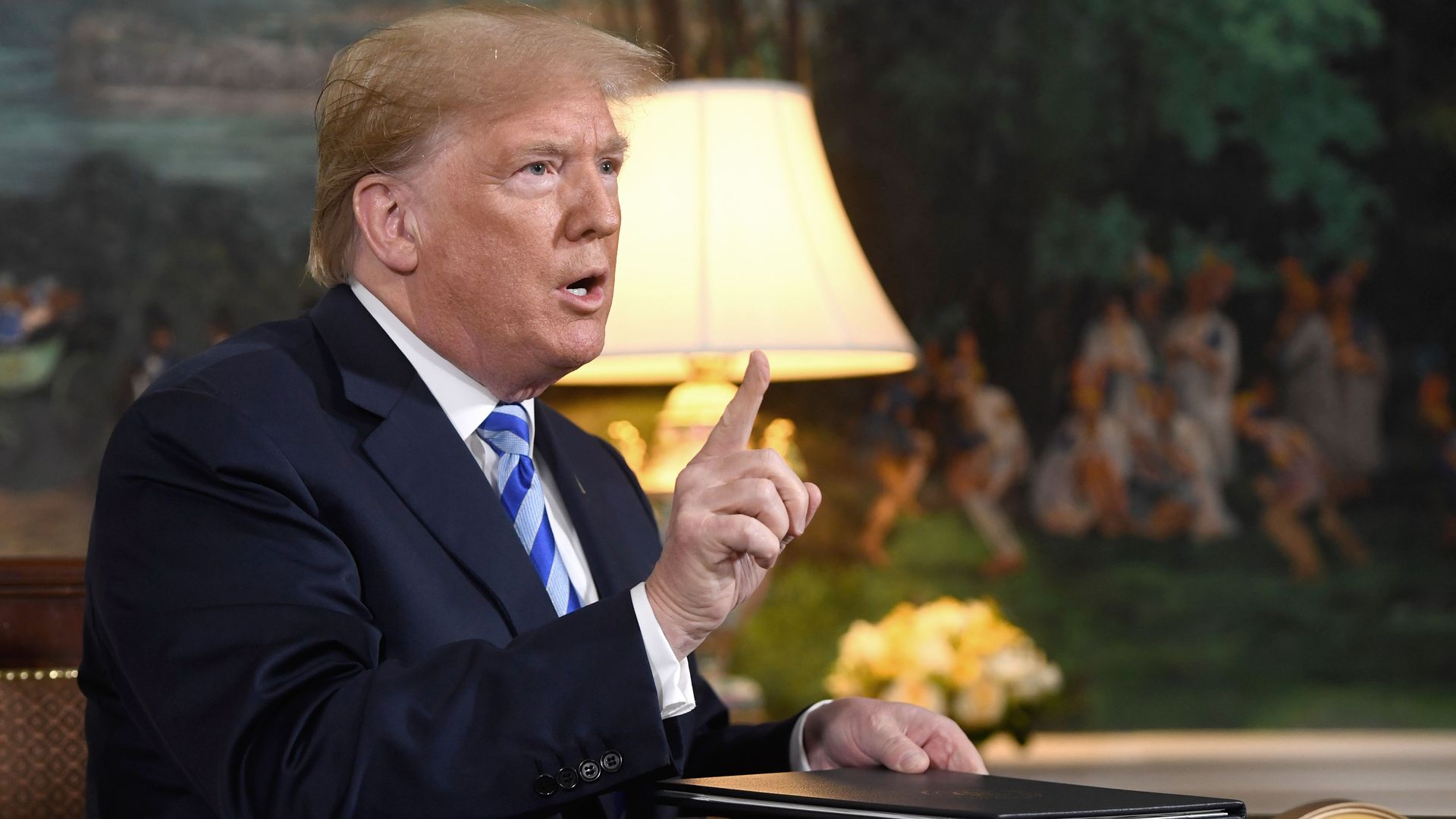Leaving "rotten" Iran deal, Trump rushes nuclear showdown
Add Axios as your preferred source to
see more of our stories on Google.

President Trump after signing a document reinstating sanctions against Iran on May 8, 2018. Photo: Saul Loeb/AFP/Getty Images
President Trump took the most radical option available in pulling out of the Iran nuclear deal, which he variously described as “horrible,” “one-sided,” “disastrous,” “decaying” and “rotten.” He also announced the re-imposition of U.S. sanctions against Iran and those who continue to do business with Iran.
Why it matters: Trump’s decision could force a showdown over Iran’s nuclear program now rather than in a decade. If Iran were to resume nuclear activities proscribed by the Joint Comprehensive Plan of Action (JCPOA), there is a real risk the U.S. or Israel would launch attacks against it, starting a regional conflict of unknown dimensions.
Trump did not emphasize Iranian non-compliance with the JCPOA. Instead, he cited Iran’s ability to exploit the limitations and perceived flaws of the 2015 agreement, which neither addresses Iran’s push for regional influence (including support for terrorism) nor precludes Iran from implementing many prerequisites of a nuclear weapons program when limits on centrifuges and enriched uranium “sunset” in just over 7 and 12 years respectively.
What’s next: Iran will want to start talks with the Europeans, China and Russia about preserving the JCPOA and avoiding broad sanctions. But Trump’s withdrawal could bring about a conflict with European governments if he follows through on threats to sanction those who maintain business ties with Iran after 3 or 6 months.
The decision could lead North Korea to question the utility of signing an agreement with the U.S. and reinforce doubts around the world about the willingness of this president to stand by American commitments.
Last, Trump has added to Iran’s economic difficulties but at the cost of empowering the most militant elements in Iran and making it more difficult for the Iranian people to challenge their government, lest they seem to be siding with the “Great Satan.”
The bottom line: There was no urgency to change U.S. policy now. A wiser path would have been to live with the JCPOA, continue negotiations with Europeans and others on a successor pact to extend Iranian nuclear constraints, push for new sanctions tied to Iran’s ballistic missile program and do more to frustrate Iran’s efforts around the Middle East, including keeping U.S. military forces in Syria.
Richard Haass is president of the Council on Foreign Relations and the author of “A World in Disarray.”
